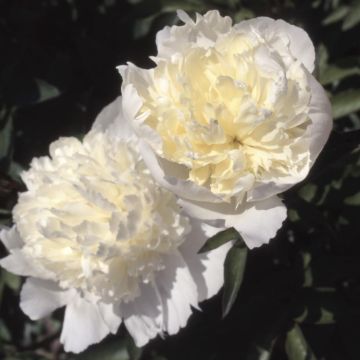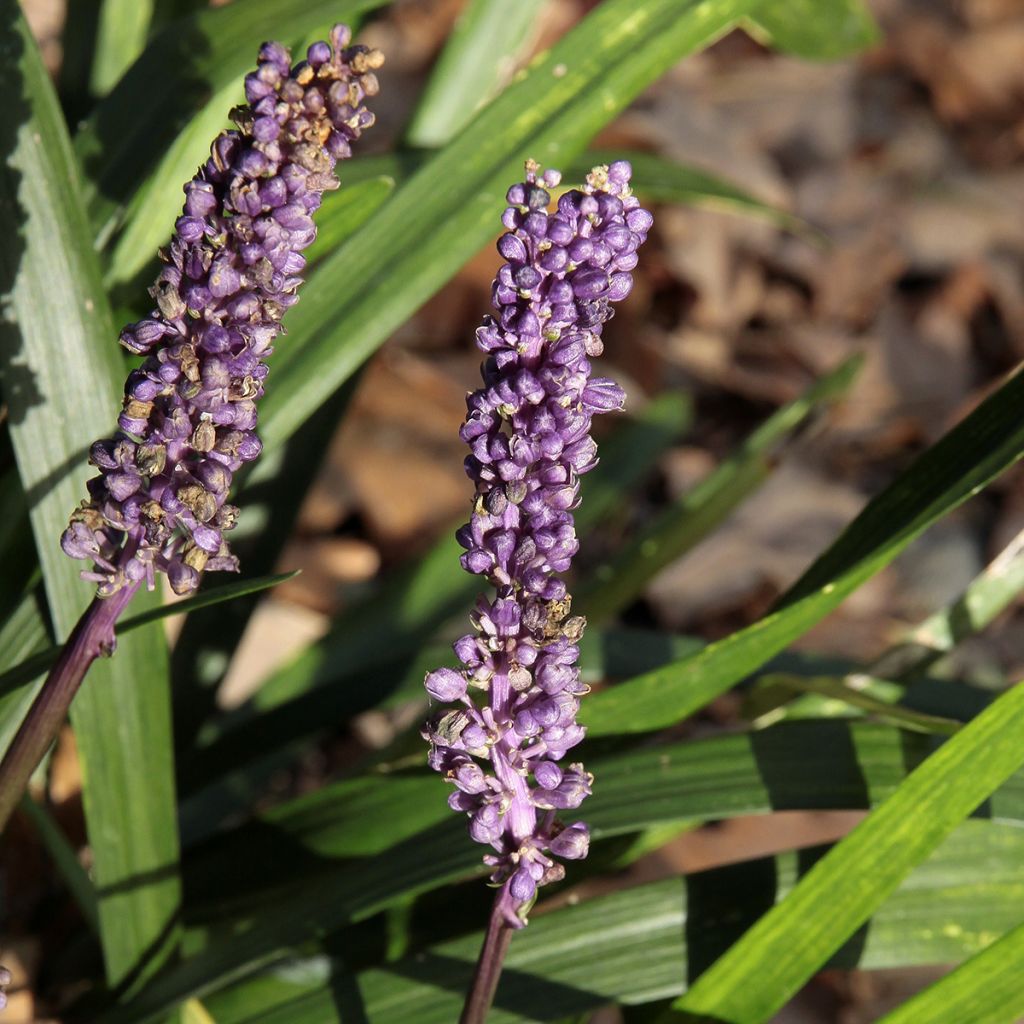

Liriope muscari Royal Purple


Liriope muscari Royal Purple
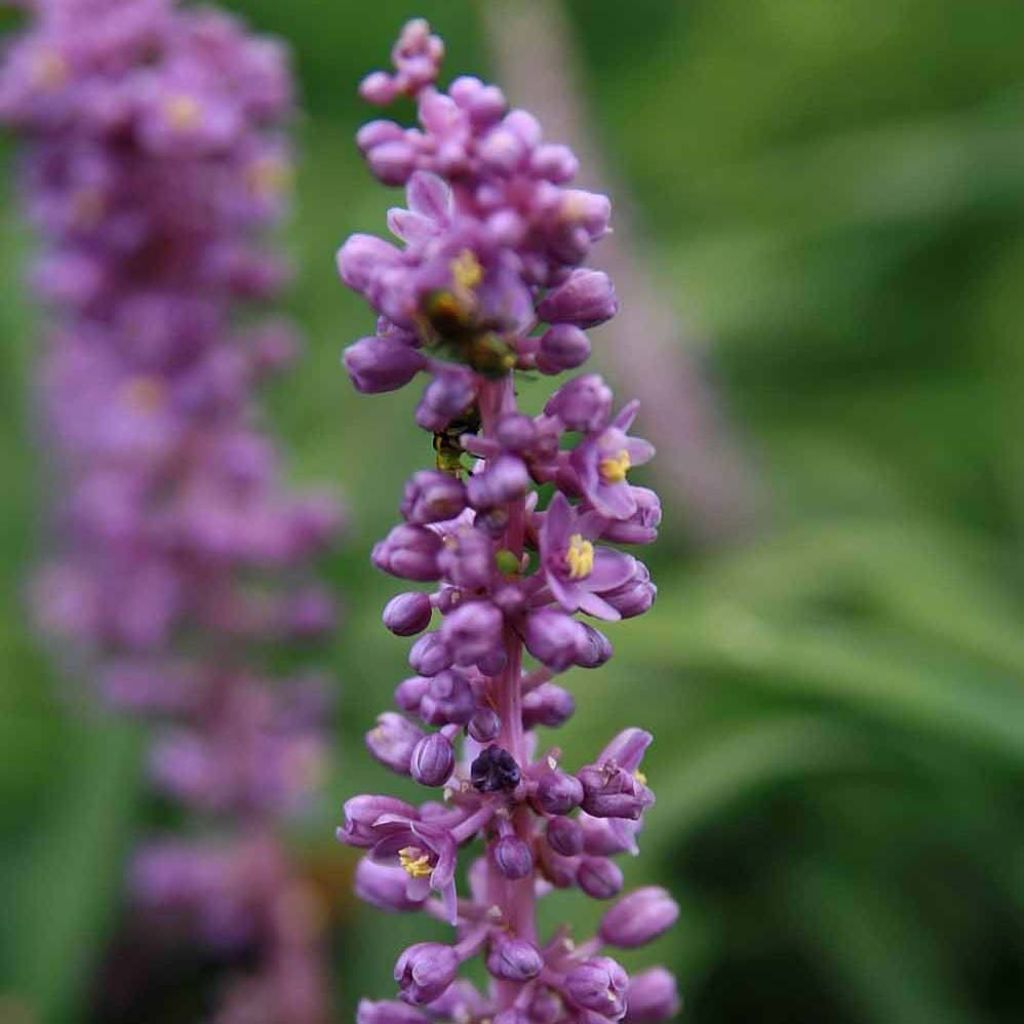

Liriope muscari Royal Purple
Liriope muscari Royal Purple
Liriope muscari Royal Purple
Lilyturf, Blue Lilyturf, Border Grass, Monkey Grass
Well-developed plant, arrived in perfect condition, planted immediately.
jocelyne, 14/05/2023
This item cannot be shipped to the selected country
Delivery charge from €5.90
Delivery charge from €5.90
More information
Schedule delivery date,
and select date in basket
This plant carries a 12 months recovery warranty
More information
We guarantee the quality of our plants for a full growing cycle, and will replace at our expense any plant that fails to recover under normal climatic and planting conditions.
From €5.90 for pickup delivery and €6.90 for home delivery
Express home delivery from €8.90.
From €5.90 for pickup delivery and €6.90 for home delivery
Express home delivery from €8.90.

Does this plant fit my garden?
Set up your Plantfit profile →
Description
The Royal Purple Liriope is a variety of Liriope muscari that will charm with its more colourful flowering, of a violet-purple hue, as well as its beautifully dense and glossy foliage, of a very dark green. Forming a well-compacted clump of slender leaves that persist through winter, this plant somewhat resembles certain grasses. It is adorned in summer with densely-packed clusters of small bell-shaped flowers, clearly visible above the foliage. Hardy and highly resistant, capable of choking out 'weeds', this perennial makes for a low-maintenance ground cover. It will elegantly fill the base of trees, the borders of flower beds or pathways, pots, and can even replace the lawn in less frequented areas of the garden, including in dry shade.
The Royal Purple Liriope belongs to the Liliaceae family (Asparagaceae), just like its native ancestor from temperate Southeast Asia (China, Korea, Japan, Vietnam). This herbaceous perennial with short and fibrous rhizomes forms dense clumps, so it is not invasive, and its stems are almost non-existent. It forms a dense bouquet of leaves, around 30 cm (12in) in all directions, slowly spreading to eventually create large, attractive dark patches throughout the year. Its leaves are quite flexible, slightly trailing, ribbon-like, lanceolate, measuring 30 to 40cm (12 to 16in) in length and approximately 1 to 2 cm (0 to 1in) in width. They are glossy and a particularly dark green, sometimes marginated with purple. Flowering occurs from August to October, depending on the climate, on floral stems of a purple colour that rise well above the foliage. It takes the form of inflorescences in spikes of 40-45 cm (16-18in) in height, densely packed with numerous small round bells of an intense purple-violet hue. The flowering, nectar-rich and visited by butterflies, is followed by the formation of black fruits.
The Liriope muscari is a discreet yet elegant, accommodating, versatile, and very useful plant in a garden. Its great resistance to cold, drought, and shade allows it to be used in many situations: in light woodland, at the base of trees, as a border to highlight the design of a pathway, in a rockery alongside heathers for example, or in Japanese-style gardens. Combine this lovely Lilac Wonder variety with Chantilly Heuchera in moist soil, with small spring bulbs (snowdrops, muscari, botanical narcissus), or even with lilies in a border or rockery exposed to morning sun. It is also a plant that grows very well in pots, on a windowsill or balcony. It is so accommodating that it will forgive forgetfulness in watering, thrive in gardens without gardeners or weekend gardens.
Report an error about the product description
Liriope muscari Royal Purple in pictures
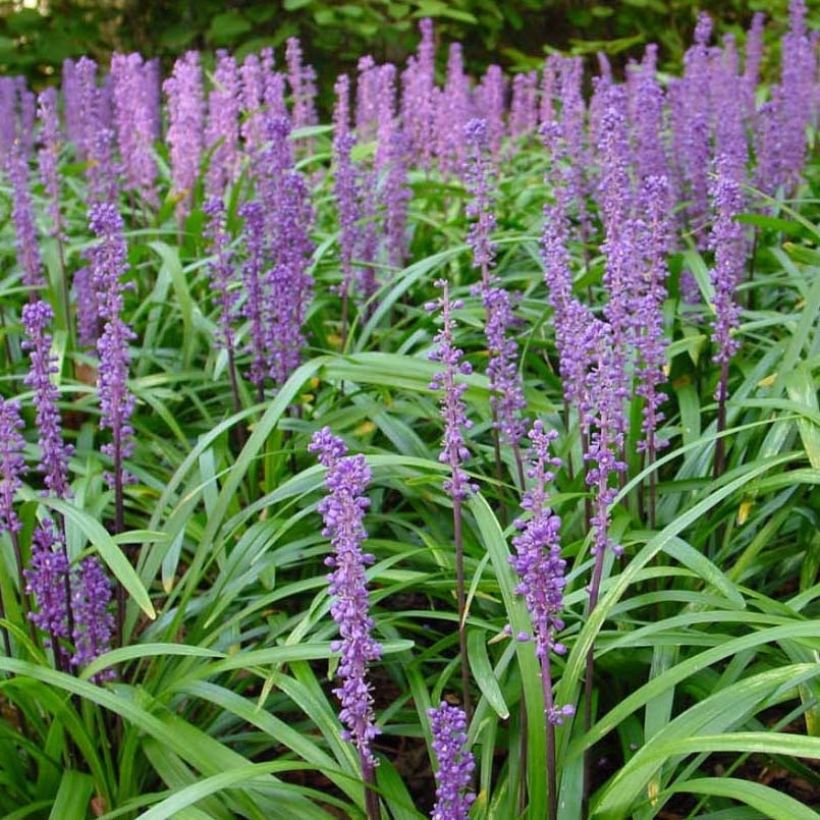

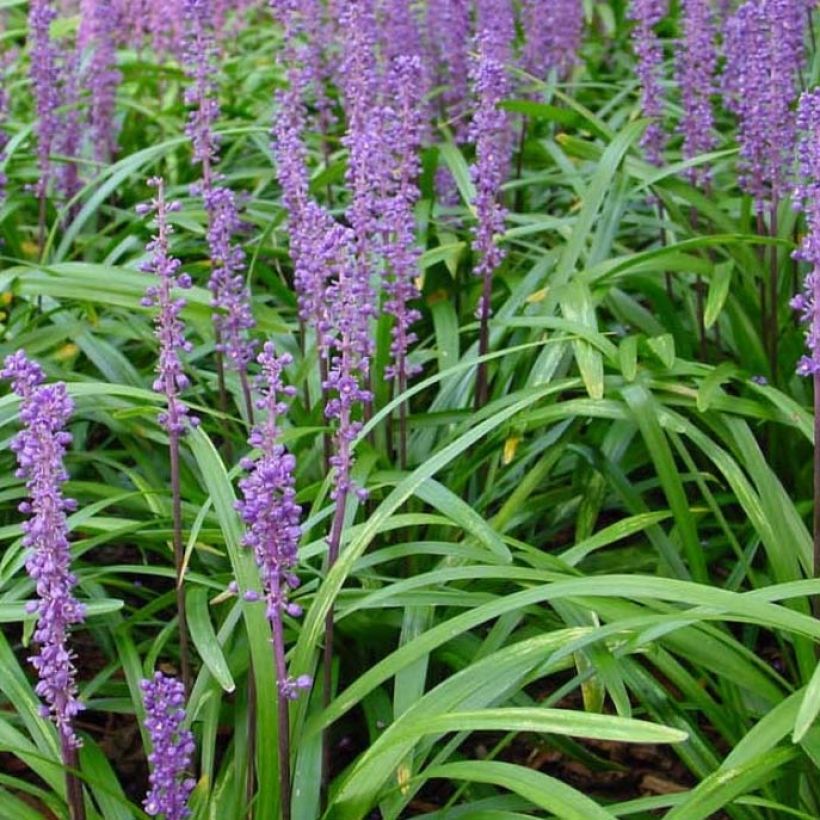

Flowering
Foliage
Plant habit
Botanical data
Liriope
muscari
Royal Purple
Liliaceae (Asparagaceae)
Lilyturf, Blue Lilyturf, Border Grass, Monkey Grass
Cultivar or hybrid
Other Perennials A to Z
Planting and care
Plant the liriope muscari 'Royal Purple' in spring or autumn, in well-drained soil, without excess limestone (ideally rich in humus), in dappled sunlight, partial shade or even full shade. It will require more water if planted in the sun. Its roots suffer from stagnant moisture in winter, so it will be necessary to ensure good drainage in heavy and clayey soil. In early spring, remove damaged leaves before the annual regrowth. This plant does not require any special maintenance. Once well-established, it can go without watering in summer, but in our driest and hottest regions, it will benefit from watering once or twice a month.
Planting period
Intended location
Care
-
, onOrder confirmed
Reply from on Promesse de fleurs
Summer flowering perennials
Haven't found what you were looking for?
Hardiness is the lowest winter temperature a plant can endure without suffering serious damage or even dying. However, hardiness is affected by location (a sheltered area, such as a patio), protection (winter cover) and soil type (hardiness is improved by well-drained soil).

Photo Sharing Terms & Conditions
In order to encourage gardeners to interact and share their experiences, Promesse de fleurs offers various media enabling content to be uploaded onto its Site - in particular via the ‘Photo sharing’ module.
The User agrees to refrain from:
- Posting any content that is illegal, prejudicial, insulting, racist, inciteful to hatred, revisionist, contrary to public decency, that infringes on privacy or on the privacy rights of third parties, in particular the publicity rights of persons and goods, intellectual property rights, or the right to privacy.
- Submitting content on behalf of a third party;
- Impersonate the identity of a third party and/or publish any personal information about a third party;
In general, the User undertakes to refrain from any unethical behaviour.
All Content (in particular text, comments, files, images, photos, videos, creative works, etc.), which may be subject to property or intellectual property rights, image or other private rights, shall remain the property of the User, subject to the limited rights granted by the terms of the licence granted by Promesse de fleurs as stated below. Users are at liberty to publish or not to publish such Content on the Site, notably via the ‘Photo Sharing’ facility, and accept that this Content shall be made public and freely accessible, notably on the Internet.
Users further acknowledge, undertake to have ,and guarantee that they hold all necessary rights and permissions to publish such material on the Site, in particular with regard to the legislation in force pertaining to any privacy, property, intellectual property, image, or contractual rights, or rights of any other nature. By publishing such Content on the Site, Users acknowledge accepting full liability as publishers of the Content within the meaning of the law, and grant Promesse de fleurs, free of charge, an inclusive, worldwide licence for the said Content for the entire duration of its publication, including all reproduction, representation, up/downloading, displaying, performing, transmission, and storage rights.
Users also grant permission for their name to be linked to the Content and accept that this link may not always be made available.
By engaging in posting material, Users consent to their Content becoming automatically accessible on the Internet, in particular on other sites and/or blogs and/or web pages of the Promesse de fleurs site, including in particular social pages and the Promesse de fleurs catalogue.
Users may secure the removal of entrusted content free of charge by issuing a simple request via our contact form.
The flowering period indicated on our website applies to countries and regions located in USDA zone 8 (France, the United Kingdom, Ireland, the Netherlands, etc.)
It will vary according to where you live:
- In zones 9 to 10 (Italy, Spain, Greece, etc.), flowering will occur about 2 to 4 weeks earlier.
- In zones 6 to 7 (Germany, Poland, Slovenia, and lower mountainous regions), flowering will be delayed by 2 to 3 weeks.
- In zone 5 (Central Europe, Scandinavia), blooming will be delayed by 3 to 5 weeks.
In temperate climates, pruning of spring-flowering shrubs (forsythia, spireas, etc.) should be done just after flowering.
Pruning of summer-flowering shrubs (Indian Lilac, Perovskia, etc.) can be done in winter or spring.
In cold regions as well as with frost-sensitive plants, avoid pruning too early when severe frosts may still occur.
The planting period indicated on our website applies to countries and regions located in USDA zone 8 (France, United Kingdom, Ireland, Netherlands).
It will vary according to where you live:
- In Mediterranean zones (Marseille, Madrid, Milan, etc.), autumn and winter are the best planting periods.
- In continental zones (Strasbourg, Munich, Vienna, etc.), delay planting by 2 to 3 weeks in spring and bring it forward by 2 to 4 weeks in autumn.
- In mountainous regions (the Alps, Pyrenees, Carpathians, etc.), it is best to plant in late spring (May-June) or late summer (August-September).
The harvesting period indicated on our website applies to countries and regions in USDA zone 8 (France, England, Ireland, the Netherlands).
In colder areas (Scandinavia, Poland, Austria...) fruit and vegetable harvests are likely to be delayed by 3-4 weeks.
In warmer areas (Italy, Spain, Greece, etc.), harvesting will probably take place earlier, depending on weather conditions.
The sowing periods indicated on our website apply to countries and regions within USDA Zone 8 (France, UK, Ireland, Netherlands).
In colder areas (Scandinavia, Poland, Austria...), delay any outdoor sowing by 3-4 weeks, or sow under glass.
In warmer climes (Italy, Spain, Greece, etc.), bring outdoor sowing forward by a few weeks.







































